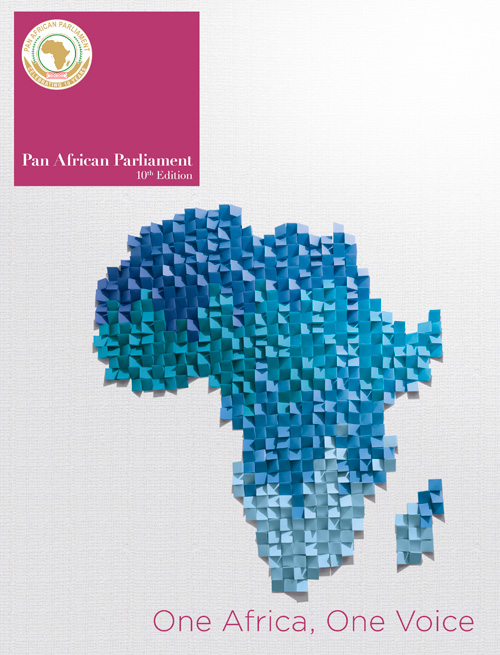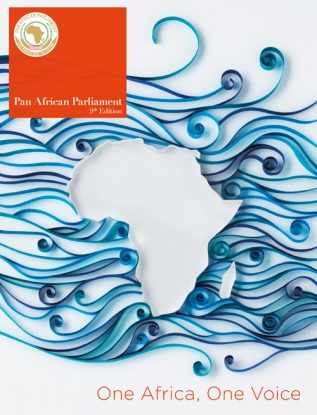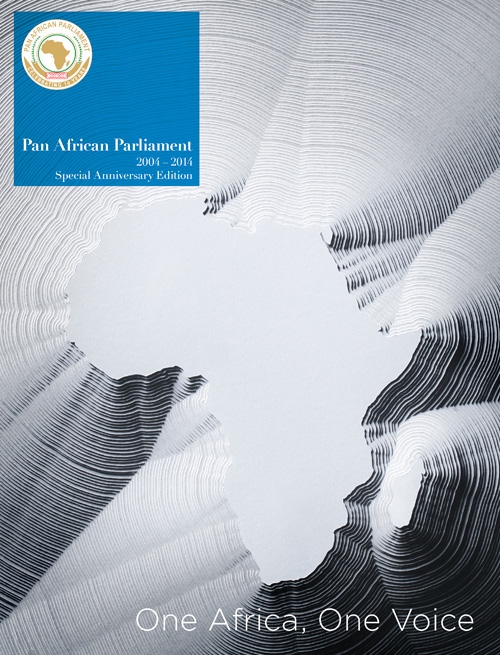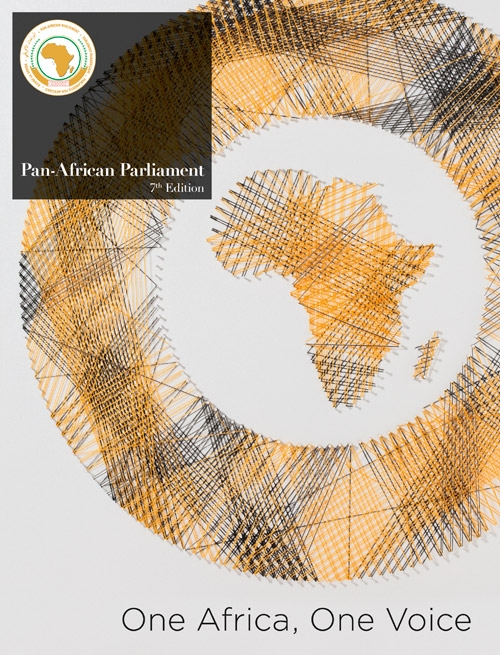
On 29 August 2012, 45 Clerks from AU Member Parliaments attended the Third Consultative Meeting of the Pan African Clerks/Secre-taries-General/Secretaries of Parliament, held at the PAP. The theme of the meeting was ‘Strengthening the Linkages Between the PAP with Regional and National Parliaments’.
Co-operation between the PAP as well as Regional and National Parliaments would ensure a consistent platform for dialogue and contact between the PAP and heads of the Parliamentary Administration. Co-operation would enhance the effective dissemination of reports and resolutions from the PAP to National and Regional Parliaments, and facilitate the development of various parliamentary frameworks for ratification and domestication of AU decisions and policies.
The Clerk of the PAP, Adv Zwelethu Madasa, reported that Africa is at a stage where it needs to speak with one voice on global issues. In most forums, there were divergent views from the continent, and on many occasions Africa supported and endorsed issues that did not support its own agenda.
At the time of the meeting, the PAP was working on a programme to establish focal points or liaison offices within Regional and National Parliaments. These focal points would ensure that Parliaments would be updated on decisions of the AU and PAP, and that they would also act as resource centres within National Parliaments to receive and refer AU/ PAP documents to relevant organs within National Parliaments.
Ravi Poliah of the South African Parliament briefed the Clerks on the activities of the African Parliamentary Knowledge Network (APKN). The network enables knowledge sharing on matters relating to evidence-based legislative design; guidelines and common standards when drafting laws; access to free online legislation to support the harmonisation of laws and integration in Africa; and access to laws and shared experiences.
Clerks were urged to take ownership of the APKN and ensure its sustainability, and create a more inclusive and democratic governance structure. This includes finding alternative sources of funds to sustain the network.
Heindri Bailey, a parliamentary expert, presented a report on the establishment of a Parliamentary Association of Secretary Generals in Africa (PASGA). He noted that the landscape in which Parliaments operate is now more complex and faster moving than ever before. The onus was on Parliaments to demonstrate that consultative initiatives were achieving results. There is therefore a need to establish a platform so that Clerks and Secretary-Generals could have a common under-standing of issues that affect the efficacy of Parliaments.
Africa is at a stage where it needs to speak with one voice on global issues
The Clerks agreed that the PAP would develop the objectives of PASGA in line with the deliberations of the Clerks meeting. The draft objectives would be sent to all Clerks for input and then finalised for adoption at their meeting in 2013. A structure would then be developed for PASGA by a committee established by the Clerks. The report on the objectives and structure will then be submitted to the Bureau of the PAP and the PAP Plenary for adoption.
2013 Meeting
Promoting the African Charter
The theme for the 2013 Annual Clerks/Secretaries- General Consultative Dialogue was ‘Promoting The African Charter on Values and Principles of Public Service and Administration in the Management of Parliaments’.
Adv Zwelethu Madasa outlined the main objectives and aims of the consultation, which was to provide a forum for Clerks and Secretaries-General to share experiences on a wide range of issues, particularly relating to how effectively National and Regional Parliaments can deliver on their respective mandates.
The main presentation at the meeting was given by Prof Okey Onyejekwe, the managing director of the Centre for Sustainable Governance. He argued that democratic and good governance are inextricably linked to sustainable development and that the African Charter on Values and Principles of Public Service will enhance parliamentary effectiveness.
Democratic governance and good governance are inextricably linked to sustainable development
By adapting and adopting the core elements of the Charter when managing the PAP, as well as Regional and National Parliaments, Onyejekwe said that their effectiveness to deliver on their mandates would be significantly enhanced. The credibility of these Parliaments would improve and they would be seen as operating with the same standards and values they use to perform their oversight functions with the executive.
Participants agreed on a number of resolutions, which included:
- PAP should lead and initiate consultations with the Regional and National Parliaments on the dissemination, adoption and ratification of the charter.
- PAP to assist in developing a robust monitoring and evaluation framework. Strengthening of financial management systems.
- Developing or strengthening a Code of Ethics and the Codes of Conduct.
- Developing knowledge-sharing platforms to disseminate best and worst practices.
- Setting up a framework to link the activities of PAP Parliamentarians to their National Parliaments. Make it mandatory for PAP Parliamentarians to report on how their decisions feed into National Parliaments.
The APKN then presented the proposed transfer of the network to the Secretariat of the PAP. Discussions showed that there were many unresolved issues and divergent views on this proposal.
It was agreed that this is an issue that should be revisited at a later date. Prof Osy Nwebo, the Director of the Bureau, spoke on behalf of the President of the PAP, the Hon Bethel Naemeka Amadi, who was unable to attend. Prof Nwebo agreed with participants that the Clerk of the PAP, Adv Zwelenth Madasa, as well as the PAP, had chosen a very important and relevant theme for the consultation dialogue. He agreed that if the objectives were met, parliamentary effectiveness would be greatly enhanced. Prof Nwebo also pledged to support the PAP in implementing the recommenda-tions, given the importance of domesticating the Charter when managing the Parliaments.







